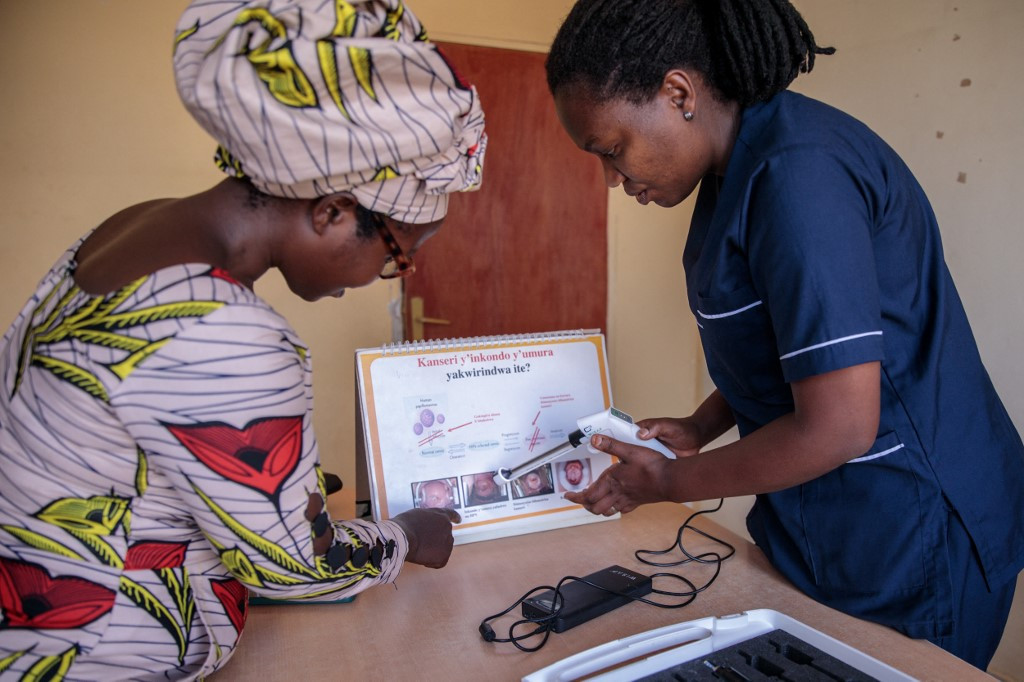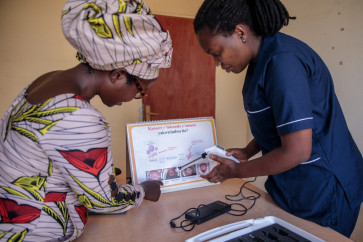Popular Reads
Top Results
Can't find what you're looking for?
View all search resultsPopular Reads
Top Results
Can't find what you're looking for?
View all search resultsThe technology fighting Rwanda's silent killer of women
When Rwandan villager Lillian was diagnosed with cervical cancer, she feared that her life was over. But a new gadget offered her hope.
Change text size
Gift Premium Articles
to Anyone
W
hen Rwandan villager Lillian was diagnosed with cervical cancer, the 30-year-old feared that her life was over. But a new gadget aimed at patients in low-income countries offered her hope.
"The medical diagnosis was very scary; my husband couldn't believe it," Lillian -- not her real name -- told AFP.
"We had heard of people dying of cancer and that it was incurable, so it was a very scary moment."
Her fears were not unfounded.
Cervical cancer is a notorious "silent killer" of women, but especially so in poor countries that lack affordable treatment and diagnostics.
In Rwanda, it is the most commonly diagnosed cancer, attacking 42 out of every 100,000 women, three times the global average, according to national statistics.
The stigma and fear surrounding the disease and its connection to HIV -- a major risk factor for cervical cancer -- means many Rwandan women are reluctant even to get tested.



















